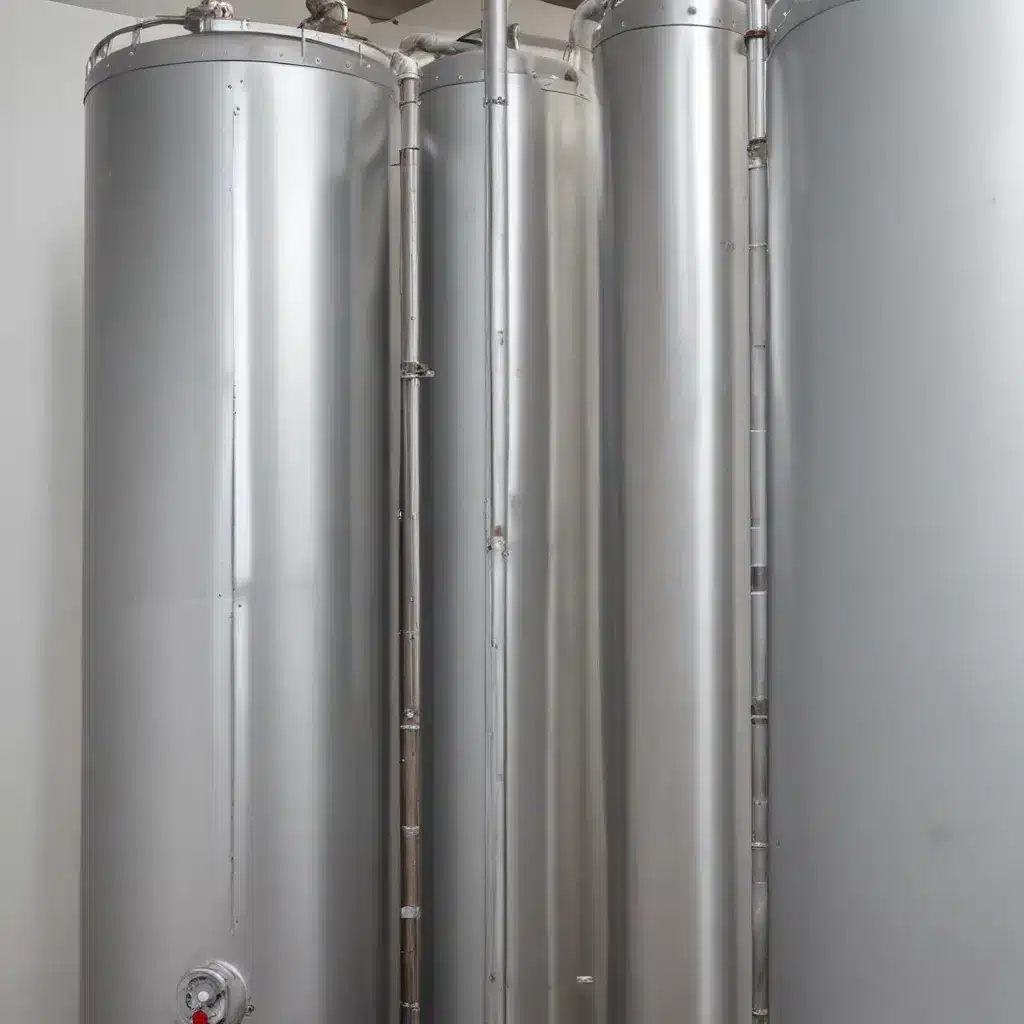
As an experienced water heater specialist, I understand the critical role that anode rods play in protecting the integrity of gas-fired storage tank water heaters. However, one common issue that homeowners and plumbers often face is the premature corrosion of aluminum anode rods. In this comprehensive article, we’ll explore the underlying causes of this problem and discuss effective strategies for addressing corrosion in aluminum anode rods.
Now, this might seem counterintuitive when dealing with water heaters…
Water Heater Components
Anode Rods
The anode rod is a vital component of a water heater, responsible for protecting the tank from corrosion. Typically made of magnesium, aluminum, or a combination of metals, the anode rod sacrifices itself to the corrosive elements in the water, preventing the metal tank from being eaten away. Over time, the anode rod becomes depleted and might want to be replaced to maintain the tank’s integrity.
Tank Materials
Modern water heater tanks are primarily constructed from steel, which is susceptible to corrosion. The anode rod’s role is to create a electrochemical reaction, drawing corrosive elements away from the steel tank and towards the anode, effectively shielding the tank from deterioration.
Heating Elements
Whether the water heater is gas-fired or electric, the heating elements play a crucial role in the system. In gas-fired water heaters, the burner assembly and flue baffle are responsible for efficiently transferring heat to the water, while electric models rely on submerged heating elements to heat the water.
Water Heater Maintenance
Routine Inspections
Regular inspections of the water heater are essential to identify and address any potential issues, including corrosion. Homeowners should visually inspect the tank, connections, and anode rod during routine maintenance to double-check that the system is functioning optimally.
Anode Rod Replacement
As the anode rod becomes depleted, it might want to be replaced to maintain the water heater’s corrosion protection. Manufacturers typically recommend replacing the anode rod every 3-5 years, depending on water quality and usage patterns.
Sediment Flushing
Mineral buildup and sediment can accumulate in the bottom of the water heater tank, reducing efficiency and potentially contributing to corrosion. Flushing the tank regularly, as recommended by the manufacturer, can help mitigate these issues.
Plumbing Techniques
Pipe Connections
Proper plumbing techniques, such as using the correct fittings and ensuring tight connections, are crucial for maintaining the water heater’s performance and preventing leaks.
Valve Installation
The proper installation of valves, such as the temperature and pressure (T&P) relief valve, is essential for the safe operation of the water heater.
Leak Detection
Identifying and addressing even minor leaks around the water heater is important to prevent further corrosion and potential water damage.
Installation Methods
Tank Placement
The location and orientation of the water heater tank can impact its performance and lifespan. Ensuring the tank is level and positioned in a well-ventilated area is crucial.
Venting Requirements
For gas-fired water heaters, proper venting is essential for safe operation and to prevent the buildup of hazardous combustion byproducts.
Electrical Connections
Proper electrical connections, in accordance with local codes and manufacturer specifications, are crucial for the safe and efficient operation of electric water heaters.
Corrosion Factors
Water Chemistry
The chemical composition of the water, particularly its pH, hardness, and mineral content, can significantly impact the rate of corrosion in water heater components, including the anode rod.
Environmental Conditions
Environmental factors, such as ambient temperature and humidity, can also contribute to the corrosion of water heater components, including the anode rod.
Material Compatibility
The compatibility of the anode rod material with the water heater tank and other components is an important consideration in preventing corrosion.
Troubleshooting Corrosion
Identifying Corrosion Types
Understanding the different types of corrosion, such as galvanic, pitting, and general corrosion, is essential for developing effective strategies to address the issue.
Preventative Measures
Implementing preventative measures, such as regular anode rod replacement and water treatment, can help extend the lifespan of the water heater and mitigate corrosion issues.
Repair Strategies
In cases where corrosion has already occurred, various repair strategies, such as tank lining or replacement of the anode rod, may be necessary to restore the water heater’s performance and prevent further damage.
Regulatory Considerations
Safety Standards
Compliance with relevant safety standards, such as those set by the National Fire Protection Association (NFPA) and the American Society of Mechanical Engineers (ASME), is crucial for ensuring the safe operation of water heaters.
Energy Efficiency
Regulations and standards related to energy efficiency, such as those set by the U.S. Department of Energy, can have a significant impact on the selection and installation of water heaters.
Permit Requirements
Homeowners and plumbers might want to be aware of local building and plumbing codes, as well as any permit requirements, when installing or servicing water heaters.
Emerging Technologies
Composite Anode Rods
Advances in materials science have led to the development of composite anode rods, which can offer improved corrosion resistance and longer lifespan compared to traditional aluminum or magnesium anode rods.
Smart Water Heater Monitoring
The integration of smart home technologies with water heaters can provide homeowners with real-time monitoring and diagnostics, helping to identify and address issues, including corrosion, before they become more severe.
Alternative Heating Sources
While traditional gas-fired and electric water heaters remain the most prevalent, alternative heating sources, such as heat pump water heaters and tankless water heaters, are becoming more popular and may offer additional benefits in terms of energy efficiency and corrosion resistance.
By understanding the underlying causes of corrosion in aluminum anode rods and implementing effective maintenance and repair strategies, homeowners and plumbers can extend the lifespan of gas-fired storage tank water heaters and double-check that their safe and efficient operation. For more information on water heater maintenance, plumbing solutions, and installation techniques, visit https://waterheaterpick.com/.
Tip: Consider upgrading to a tankless water heater for energy savings

